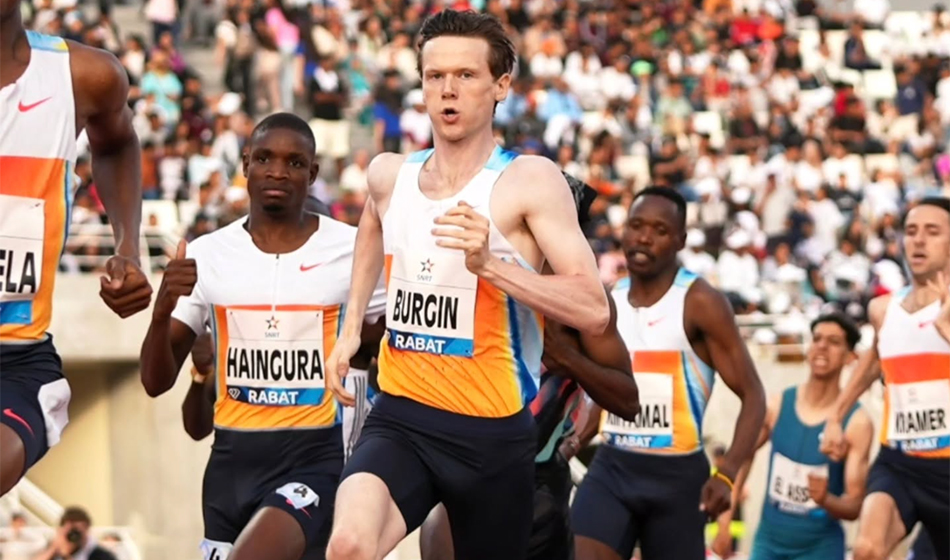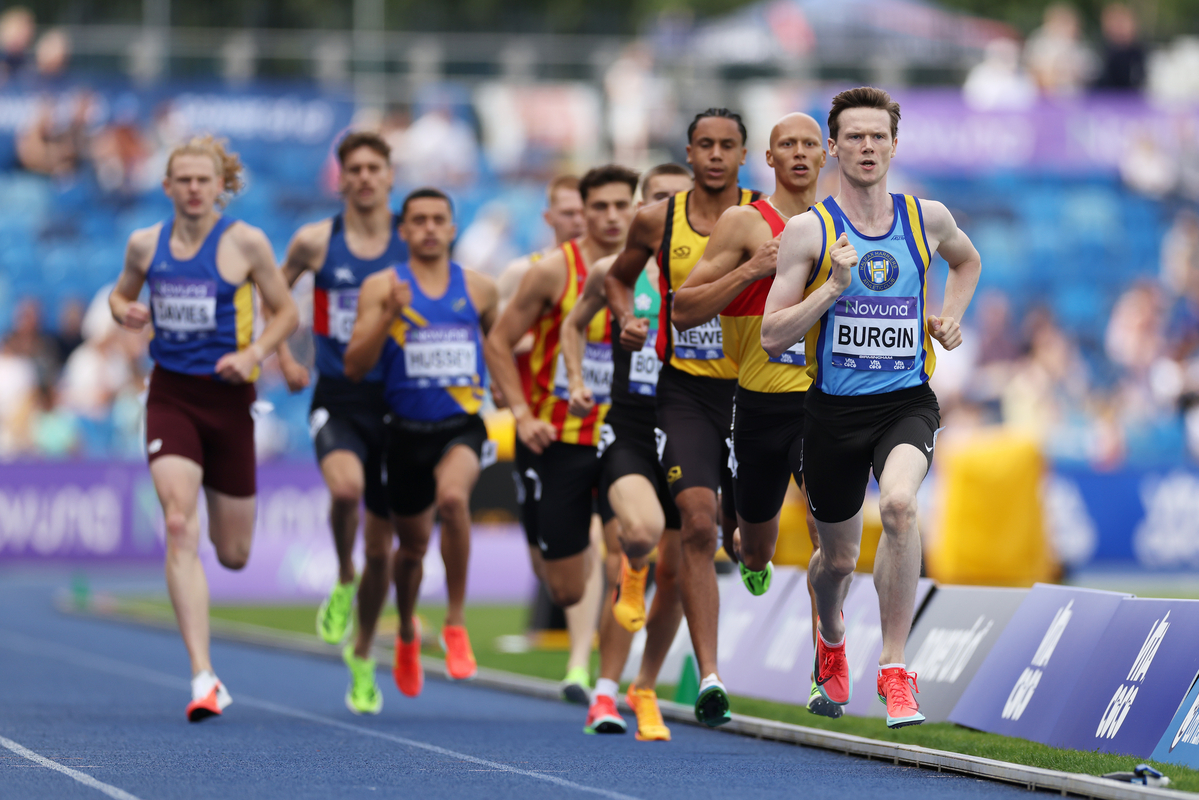British 800m champion eyes World Championship success in Tokyo after a strong and consistent season.
Max Burgin has spent most of the 2025 season racing the best in the world – and beating many of them. The 23-year-old heads into the World Championships in Tokyo on Tuesday (Sept 16) as one of the leading 800m runners on the circuit, with a personal best of 1:42.36 and a growing sense of confidence.
Much of that confidence, Burgin says, comes from how the event itself has shifted in the past two years, particularly because of the way Olympic champion Emmanuel Wanyonyi has changed the way the 800m is being raced.
“I think you’ve got to credit Wanyonyi for creating these races,” says Burgin. “Having a person in that race, who's going to drag you round and set that race up makes those times and drags others round to these times.
“In our event, how Wanyonyi often approaches championships means that the races go quite similarly either way. Now obviously that could change. He could change that and if he does, I think it would be a considerably different race because there’s not too many other front runners in the mix at the moment.”
It’s a style of racing that Burgin has welcomed and adapted to. He was right in the mix at the Diamond League final in Zurich, finishing just behind Wanyonyi in second place and proving to himself that he belongs at the top of the event.

“Zurich was the first time this season that I've really felt like I had a proper chance of winning,” he says. “Had things gone slightly different, I think I could have [won]”
Zurich was one of this year's strong performances for Burgin, who has finally been able to string together a full year of healthy, consistent racing - something that hasn’t been possible for him in a long time.
“It’s been a great season, consistency-wise,” he says. “My first one since probably 2018 that I've actually managed to have a full season and hit pretty much every race I wanted to.”
That progress hasn’t come from any major change in training approach, he says, but more from managing the long-running injury issues that have interrupted his last few years. The Olympic finalist was forced to withdraw from the 2022 World Championships in Eugene due to DVT (deep vein thrombosis) and most recently has struggled with a sural nerve issue that has now been treated.
“That’s mainly been managed this year and sorted through a few series of stripping injections that I've got over the winter. I also have more knowledge of how to avoid setting it off. It's been a case of those things becoming resolved and me being able to actually train the way we wanted to train.

“That winter after Eugene was probably the lowest point I've had in athletics,” he says. “I’d had a few years of hamstring injuries before that but then I got that DVT and throughout that winter, I started developing the Achilles problem as well. That combined with the second year of uni all seemed quite a lot at that time and I'd say that's probably the closest to finishing off and thinking that I can't do this, that I've ever got to.”
But even in that dark period, he kept going. He said: “One of these days you will have a season where you don't have an issue like that and you can afford to push through these seasons, you just need to hang in there and still treat it like a career. I'm grateful to have finally made it through to three years later.
“I think that I’ve known for years now that if I could string more training together than I've been managing and more races as well as get that experience, that I'd be able to show a much better standard of performance,” he says. “So I wouldn't say for me running 1:42 this year has been a surprise. It was very much a target, very much something we expected and hoped to do."
Burgin has also used this season to refine his race tactics. Known early in his career as a fearless front-runner, he’s found that sitting back is sometimes his best option.
“On a global stage, I've had to change from front running because it's just not necessarily feasible or the best thing to do when these races are often running at 1:42 low and a few 1:41s,” he explains.
“Earlier in the season I was trying to run more in the pack. I was trying to run a more even-paced first lap. But that wasn’t really working for me. I was getting too bashed around in the midst of the pack in fifth and sixth, not really able to get out.”

After Monaco, where he finished last, Burgin made a tactical adjustment.
“I decided to go out and run the first 200m [in Zurich] a lot faster and really fight for that second place spot,” he says. “Still not front running but not getting caught up where I don't want to be. I think that has emerged as my number one tactical option at the moment.”
Burgin’s coaching setup remains at where it began - with his father, Ian, who has coached him since Burgin was 14.
“Having my dad in that coaching role, it's someone who's going to have the patience to get through all the setbacks, someone who's obliged to stay there and stick it out with me. I can’t think of a better way to put it than someone you can't get away from,” he jokes.
Ian has never coached another athlete and, according to Max, he likely never will.
“He stresses enough about me. He wouldn't enjoy working with other people. But that doesn't mean that he doesn't have the required knowledge or experience to do more coaching.”

Inevitably, comparisons arise with another famous father-son coaching duo: Seb and Peter Coe. Burgin is now within reach of Coe’s British record of 1:41.73.
“It feels very much within touching distance,” he says. “Whether it'll be something I could run at this championship, I don't know. Championship running is not always the best place to go chasing times but it's something that feels very much achievable now for me.”
Now, as the World Championships have arrived, Burgin is where he’s always believed he could be.
“It does feel like I’ve come through a rough patch and I've clawed my way back to where I was.”
Burgin will race in the men's 800m heats on September 16, at 11:35am BST.
